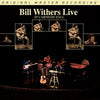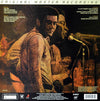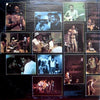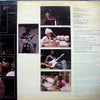







Bill Withers - Live at Carnegie Hall (2LP, Ultra Analog, Half-speed Mastering)
ORDER LIMITED TO ONE ITEM PER CUSTOMER
Bill Withers – vocals, guitar, piano [click here to see other vinyl featuring Bill Withers]
Benorce Blackmon – guitar
Melvin Dunlap – bass
Ray Jackson – piano, string and horn arrangements
James Gadson – drums
Bobbye Hall – percussion
2 LPs, gatefold jacket
Numbered limited edition
Original analog Master tape : YES
Half-speed Mastering
Gain 2™ Ultra Analog
Heavy Press : 180g
Record color : black
Speed : 33RPM
Size : 12”
Stereo
Live
Record Press : RTI
Label : MOFI
Original Label : Sussex
Recorded live on October 6, 1972 at Carnegie Hall, New York City
Engineered by Phil Schier
Produced by Bernorce Blackman, Bill Withers, James Gadson, Melvin Dunlap, Ray Jackson
Remastered by Krieg Wunderlich
Originally released in 1973
Reissued in 2014
Tracks:
Side A:
- Use Me
- Friend of Mine
- Aint No Sunshine
- Grandmas Hands
Side B:
- World Keeps Going Around
- Let Me In Your Life
- Better Off Dead
- For My Friend
Side C:
- I Cant Write Left Handed
- Lean on Me
- Lonely Town, Lonely Street
- Hope Shell Be Happier
Side D:
- Let Us Love
- Harlem/Cold Baloney
Reviews :
"A wonderful live album that capitalizes on Withers' trademark melancholy soul sound while expanding the music to fit the room granted by a live show. Lovely versions of "Grandma's Hands" and "Lean on Me" are balanced by heartfelt downbeat numbers like "Better Off Dead" and "I Can't Write Left-Handed," the latter being an anti-war song with a chilling message. The set finishes off with the lengthy "Harlem/Cold Baloney," with lots of audience-pleased call-and-response going on. One of the best live releases from the '70s." AllMusic Review by Steven McDonald
Ultra Analog™ : The GAIN 2 Ultra Analog™ Series stems from the use of the Gain 2 system, mastered at half speed from the original master tapes where possible, capturing and uncovering as before undiscovered sonic information.
Half-speed mastering. In half-speed mastering, the whole process is slowed down to half of the original speed. A typical 33 1/3 rpm record is cut at 16 2/3 rpm. The source material is also slowed down (reducing the pitch in the process) meaning the final record will still sound normal when played back. Slowing the whole process down allows more time, which means the end result sounds better and is more efficient — allowing engineering to minimize the effects of inherent limitations within the vinyl format. The result is a more accurate and more open high-frequency response in the half speed vinyl when compared with a normal speed recording.
Ratings :
AllMusic : 4 / 5 , Discogs : 4,61 / 5




